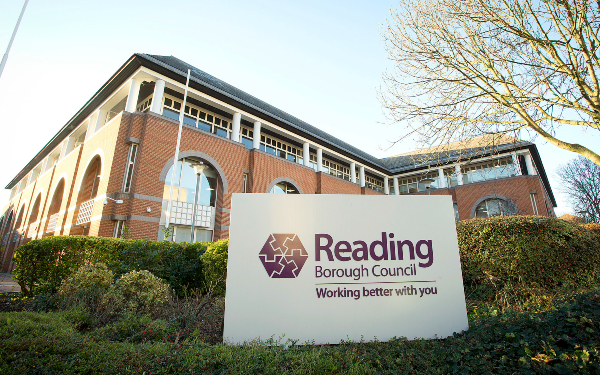
To what extent does the stigma surrounding care-experienced people originate within the care system itself?
- To a large extent (56%, 297 Votes)
- Somewhat (28%, 147 Votes)
- Not very much (11%, 58 Votes)
- Not at all (5%, 28 Votes)
Total Voters: 530
A council has voted to take back control of its children’s services, six years after it outsourced them to a company at the direction of the Department for Education (DfE).
Councillors in Reading unanimously backed a proposal not to renew Brighter Futures for Children’s (BFfC) contract to run children’s services in the borough, at a meeting yesterday (28 January 2025).
Instead, the authority will take them back in-house, a move that will involve the transfer of 550 staff from BFfC and the closure of the independent fostering agency run by the company.
The process, which the council is aiming to complete by this autumn, is expected to cost about £600,000, though is due to yield annual savings of £200,000-£300,000.
Why council lost control of services
The DfE directed the outsourcing of Reading’s services, then rated inadequate, in 2017 on the recommendation of a department-appointed commissioner, who found provision to be “fragile” and in “considerable need of improvement”.
The council, which supported the move, then established BBfC as a wholly-owned company, with services transferring the following year under a seven-year contract, the overarching aim of which was to improve services to ‘good’.
Following an inspection in 2019, Ofsted gave the borough’s services a requires improvement rating. However, there was no progress on this overall grade after Reading children’s services’ latest inspection, in September 2024.
Services ‘not yet ‘good’
With the contract due to end in March 2026, the council commissioned public finance body CIPFA to review options for the future, and it recommended that Reading take back control of children’s services.
CIPFA said that a “significant factor” behind its recommendation was that BFfC had not achieved a good rating, though it recognised that there were factors beyond its control that had contributed to this.
It said that benefits from insourcing services included:
- Greater direct control over service delivery and operations.
- Reducing demands on officers’ time to maintain service level agreements with the company and eliminating a ‘layer of separation’ between children’s services and the council.
- Potential for greater integration of children’s services into wider council operations, enhancing the cost-effectiveness of service delivery.
- Assurance that children’s services are supporting the wider corporate plans and are more responsive to the council’s changing needs.
- Potential cost savings resulting from the removal of governance structures and operational duplication of approximately £200,000 – £300,000 a year.
‘Now is the time to take back services’
Commenting on the decision, council leader Liz Terry said that “now [was] the right time for the service to transfer back to the council”.
“This not only provides the council with better direct control, but additionally removes a layer of governance and helps to further integrate children’s services with other council services.”
She paid tribute to staff at BFfC “for the significant progress it has made towards delivering a ‘good’ Ofsted rating. However, she added: “At the same time, we acknowledge we still have a way to go in order to achieve that.”
BFfC chair Di Smith said the not-for-profit company’s board supported the decision, adding: “Given the national picture of increased costs and pressures in children’s services, it is logical that councils, including Reading council, would want to have full control of delivery and expenditure at this present moment in time.”
Outsourcing ‘has become less popular’
She also acknowledged that handing poorly performing council services over to children’s trusts or other so-called alternative delivery models, such as BFfC, “[had] become less popular in recent years and are now very rarely the preferred option in response to statutory intervention”.
When Reading resumes control of its’ children’s services, that would leave trusts or companies running provision in 10 of the 153 councils.
Since 2020, just one trust has been created, in Bradford, while Doncaster took its services back in-house in 2022 and Worcestershire did so this year.
During this time, trusts have been considered in other areas subject to statutory directions due to poor performance, but eventually rejected on the advice of DfE-appointed commissioners. This was often on the grounds of the potential disruption to improvements of transferring services to a new body, and the delay to progress that would result from creating such an organisation.
Instead, they have tended to recommend that the authority be supported to improve by a high-performing council, such as those listed as sector-led improvement partners by the DfE.
The DfE, meanwhile, is working on a project to develop a “more cost-effective” alternative to children’s trusts for struggling services.






 Bournemouth, Christchurch and Poole
Bournemouth, Christchurch and Poole  Hampshire County Council
Hampshire County Council  Oxfordshire County Council
Oxfordshire County Council  South Gloucestershire Council
South Gloucestershire Council  Wokingham Borough Council
Wokingham Borough Council  Webinar: building a practice framework with the influence of practitioner voice
Webinar: building a practice framework with the influence of practitioner voice  ‘They don’t have to retell their story’: building long-lasting relationships with children and young people
‘They don’t have to retell their story’: building long-lasting relationships with children and young people  Podcast: returning to social work after becoming a first-time parent
Podcast: returning to social work after becoming a first-time parent  How managers are inspiring social workers to progress in their careers
How managers are inspiring social workers to progress in their careers  Workforce Insights – showcasing a selection of the sector’s top recruiters
Workforce Insights – showcasing a selection of the sector’s top recruiters 

 Facebook
Facebook X
X LinkedIn
LinkedIn Instagram
Instagram
Generally speaking you re a million times more dis advantaged being ‘in care’. For a million big and small reasons.
Let’s remember the history here. The Conservative-led government – before the chaos of Brexit – of the early and mid 2010s were on a mission to open up public services to the private sector with Mr Cameron wanting ‘market insurgents’ to take on the running and management of children’s social services. The government was assisted by a small network of advisors within and close to the DfE, including the international outsourcing big accountancy firms, and a small cohort of government-appointed ‘commissioners’ who recommended the setting up of children’s trusts with children’s social services to be removed from local authorities. Many were to be awarded honours for their activity. BUT the process of setting up Children’s Trusts was disruptive, distracting, damaging, and delayed action and improvement, was costly in the short and longer-term, and created confused accountability. It was an ideologically motivated mission at the same time that there were big cuts in service funding as a part of the politically-chosen austerity agenda targeting people who were poor and public services. The time is well overdue for a change direction, but be wary of a return to the ‘third way’ of fudging the difference between the public and the private sectors and which opened the commercialisation door.